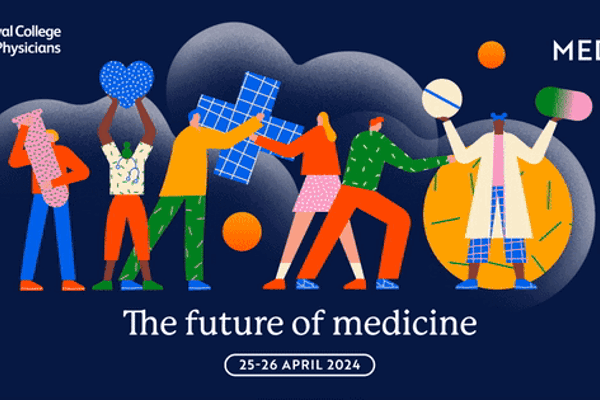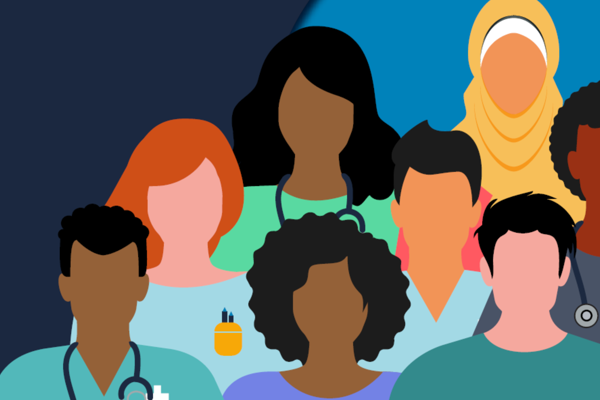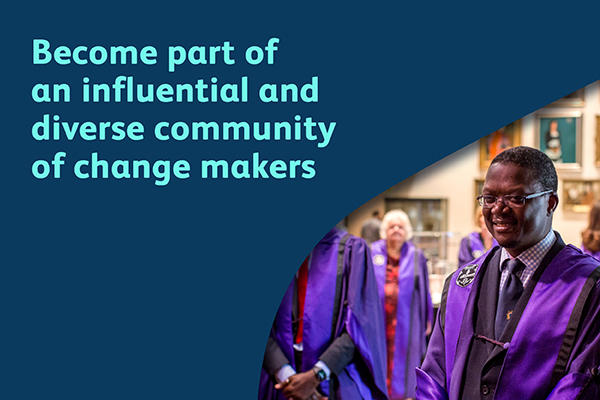Campaigning to make sure that UK policy reduces health inequalities through a focus on prevention is one of the RCP’s four policy and campaigns priorities for 2023-2026, chosen in consultation with RCP members and RCP Council.
- We will promote the principle that prevention is better than cure, and that many of the most effective preventative actions sit outside the NHS and government departments of health and social care.
- We will focus on air quality, obesity, sexual health, tobacco and alcohol as well as the social determinants of health that lead or contribute to ill health.
- We will continue to convene the IHA to make the case that we need a cross-government strategy to tackle these social determinants.
What are health inequalities and why are they important?
Reducing health inequalities – the avoidable differences in health and health outcomes across the population – is a vital part of reducing avoidable demand on the NHS and improving the nation’s health and productivity.
Our fellows and members are increasingly concerned that large swathes of the UK population are being left behind in terms of their health. Before the Covid-19 pandemic, the gap in healthy life expectancy (HLE) between the most and least deprived areas was around 19 years. The pandemic itself revealed the stark impact that inequalities can have on individuals’ health and wellbeing in the unequal levels of excess deaths.
Reducing health inequalities, and avoidable illness overall, is central to reducing avoidable demand on the NHS in the long run. A prevention first approach is key to that. But while it may seem that health inequality is a matter for the Department of Health and Social Care (DHSC) or the NHS, there is only so much health and social care services can do to treat illnesses caused or worsened by the environments people live in. If we are to prevent physical and mental ill health in the first place, there needs to be a greater focus on prevention with action on issues such as poor housing, food quality, communities and place, gambling, the availability of tobacco and marketing of alcohol, employment (including how much money you have), racism and discrimination, transport and air quality.
A prevention first approach
As a founder member of Action on Smoking and Health, the Alcohol Health Alliance, the Obesity Health Alliance and the UK Health Alliance on Climate Change, the RCP works with alliances to influence government, the NHS and others. The RCP also has an advisory group on tobacco.
In recent years, the RCP has published a series of reports on these issues:
· A national obesity prescription for England
· Smoking and health 2021: A coming of age for tobacco control?
· Every breath we take: the lifelong impact of air pollution
Key outputs
Filters
Advisory group on health inequalities
The RCP also convenes an RCP advisory group on health inequalities, which was established in 2019 to focus on reducing health inequalities and improving wellbeing in populations. Chaired by the RCP's special adviser on population health, the advisory group oversees two main strands of work: how the RCP supports its members and the wider health and care workforce to address health inequality and working with government, NHS England and others to reduce health inequality. For more information, email policy@rcp.ac.uk.
The group would like to hear from members about your experiences of how tackling health inequalities has been integrated as a priority area in your hospital or ICS.
Submit a case studyResources for members
The RCP Supporting clinicians to address health inequalities in practice report found that while clinicians often have awareness of health inequalities, they feel unable to address them in their practice. As a result, RCP has developed resources in the form of e-learning, videos and podcasts for health care workers to improve understanding of what is meant by health inequalities, how to optimise interactions with such patients, and provide more detailed discussions on specific groups of people. This new e-learning aims to provide you with knowledge you can proactively use to change your attitude and behaviour when managing patients who are experiencing, or are at risk of, health inequality. You can access the e-learning modules here and the podcasts here.







